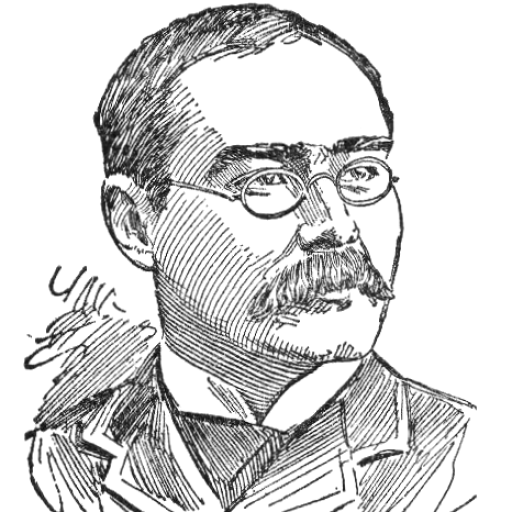But Love he is our master as of old!
Having already lost his beloved first daughter and having settled in Sussex for the rest of his life, although only thirty-seven, Kipling must by then have been feeling middle-aged when he wrote this poem of middle-age love.
The poem uses the time-honored metaphor of life as a voyage. This is no more the youthful exuberance of ‘The Long Trail’. Middle-age love may be a re-marriage (‘the second voyage’), or it may be love with one’s original partner, but the nature of love itself has changed. Middle-age persons have learned that much of life is “foul weather” (the expression repeats in every verse), and what they mostly want of their love relationship is to help them reach their objectives in life – “to come with least adventure to our goal”. They generally do not seek the exhilaration and despair, the tremors and heartbreaks of young love. Middle-aged people have learned that “Custom, Reverence and Fear” help the relationship get through the inevitable stresses of life. They have also learned that if the couple has common objectives in life, every squabble is not the end of the relationship – it is likely to “bellow off to leeward like the last … and Love can come and wake us when ’tis past”. The nature of love has changed, but it is not merely habit and convenience – it is gratefulness to one’s partner for being the helpmate on life’s journey, and “Love he is our master as of old!”
The Second Voyage
We've sent our little Cupids all ashore — They were frightened, they were tired, they were cold. Our sails of silk and purple go to store, And we've cut away our mast of beaten gold. (Foul weather!) Oh, 'tis hemp and singing pine for to stand against the brine, But Love he is our master as of old! The sea has shorn our galleries away, The salt has soiled our gilding past remede; Our paint is flaked and blistered by the spray, Our sides are half a fathom furred in weed. (Foul weather!) And the Doves of Venus fled and the petrels came instead, (1) But Love he was our master at our need! 'Was Youth would keep no vigil at the bow, 'Was Pleasure at the helm too drunk to steer — We've shipped three able quartermasters now, Men call them Custom, Reverence, and Fear. (Foul weather!) They are old and scarred and plain, but we'll run no risk again From any Port o' Paphos mutineer! (2) We seek no more the tempest for delight, We skirt no more the indraught and the shoal — (3) We ask no more of any day or night Than to come with least adventure to our goal. (Foul weather!) What we find we needs must brook, but we do not go to look Nor tempt the Lord our God that saved us whole. Yet, caring so, not overmuch we care To brace and trim for every foolish blast, (4) If the squall be pleased to sweep us unaware, He may bellow off to leeward like the last. (Foul weather!) We will blame it on the deep (for the watch must have their sleep), And Love can come and wake us when 'tis past. Oh, launch them down with music from the beach, Oh, warp them out with garlands from the quays — (5) Most resolute — a damsel unto each — New prows that seek the old Hesperides! (6) (Foul weather!) Though we know their voyage is vain, yet we see our path again In the saffroned bridesails scenting all the seas! (Foul weather!)
Notes
[1] The petrel (“little St. Peter”) is a sea-bird which rarely lands on shore; it is popularly called “stormy petrel” because it approaches ships when a storm is near.
[2] Paphos (in Cyprus) was the birthplace of Aphrodite, the Greek goddess of love (who gave her name to ‘aphrodisiacs’).
[3] We do not play any more with the dangerous in-flowing currents.
[4] Secure the ropes that hold the mast and pull tight the sails.
[5] ‘Warp them out’ – Pull their ships seaward.
[6] In the garden of the Hesperides, on a mythical island in the West, grew the golden apples of immortality.

